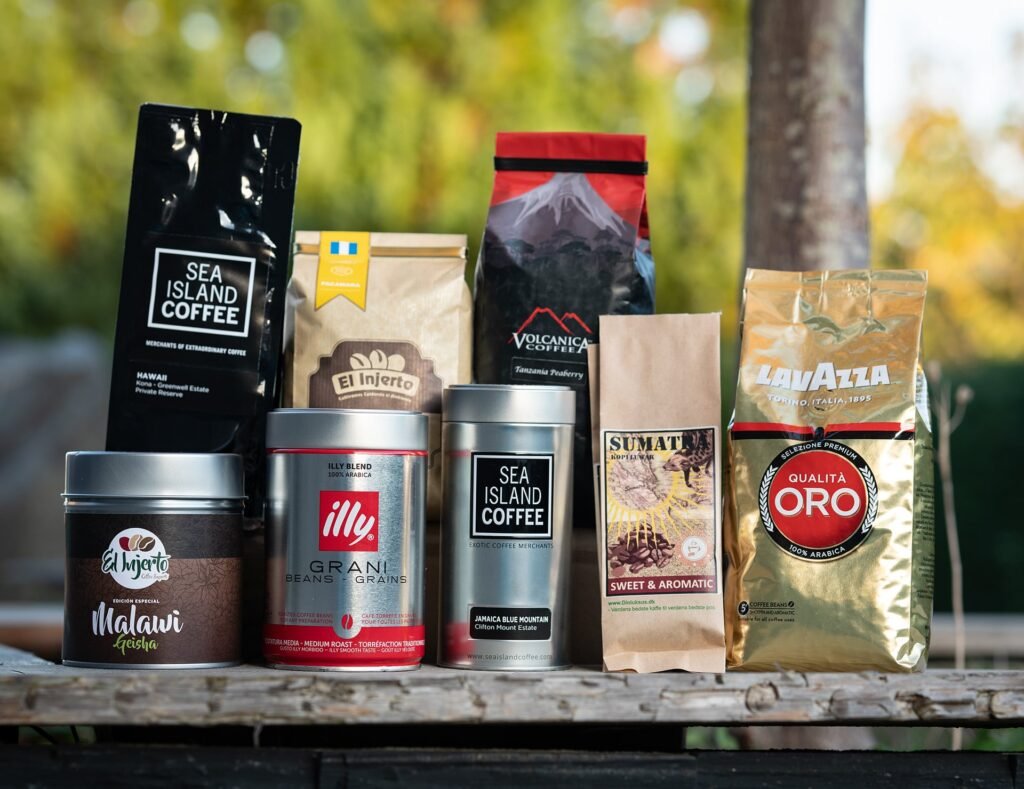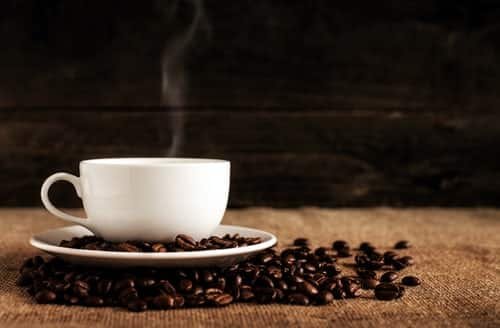What comes to mind when you think about the number 1 coffee? Is it the smooth, rich aroma that awakens your senses in the morning or the delightful jolt of energy that gets you through a busy afternoon? Coffee is deeply personal, and everyone has their own interpretation of what makes a coffee exceptional. In this article, we will explore what could be considered the number 1 coffee in the world. We will take you through various types of coffee, factors that make a coffee stand out, and how these elements contribute to its top-ranking status. Buckle up for a flavorful ride through the coffee world!
The Evolution of Coffee
Coffee has a rich history that dates back centuries. It has traveled from its origins in Ethiopia through Arabia, Europe, and eventually to the entire world. Understanding the evolution of coffee can give you a better appreciation of why it holds such a special place in so many people’s hearts.
Early Origins
Coffee is believed to have originated in Ethiopia around the 9th century. Legend has it that a goat herder named Kaldi discovered coffee after noticing that his goats became exceptionally lively after consuming berries from a particular tree.
Spread to the Arab World
By the 15th century, coffee made its way to Yemen, where it was cultivated and traded. It was in the Middle East that the first coffeehouses, known as “qahveh khaneh”, began to appear, becoming hubs for conversation, political debate, and socialization.
European Introduction
Europeans were introduced to coffee in the 17th century, and it quickly grew in popularity. Coffeehouses sprang up all over Europe, and the drink became associated with intellectual discourse and business.
Coffee in America
Coffee arrived in America in the mid-1600s, initially in the New World colonies. It gained popularity during the Revolutionary War when tea was scarce and expensive. Over time, coffee became a staple in American culture.
Factors That Define Top Coffee
Choosing the number 1 coffee is challenging because it is subjective, depending on individual preferences and cultural contexts. However, there are several key factors that contribute to what can be considered top coffee:
Quality of Beans
The quality of beans plays a critical role in determining the coffee’s taste and overall experience. Factors like the region of cultivation, altitude, and processing methods significantly influence the quality.
| Factor | Impact on Quality |
|---|---|
| Region | Different regions produce beans with unique flavor profiles. |
| Altitude | Higher altitudes tend to yield beans with more complex flavors. |
| Processing | Natural, washed, and honey processing each affect flavor and aroma. |
Roast Level
Roasting transforms green coffee beans into the aromatic brown beans you buy. The roast level greatly affects the flavor, acidity, and body of the coffee. The common roast levels are:
| Roast Level | Characteristics |
|---|---|
| Light | Bright, acidic, and retains more of the bean’s original flavors. |
| Medium | Balanced flavor, aroma, and acidity. |
| Dark | Bold, robust, and sometimes bitter, with less acidity. |
Brewing Method
The method used to brew coffee also has a substantial impact on the final cup’s taste. Common brewing methods include:
| Brewing Method | Characteristics |
|---|---|
| Espresso | Concentrated, rich, and strong with a velvety texture. |
| Drip | Clean and smooth, allowing subtle flavors to shine through. |
| French Press | Full-bodied and robust with a sedimented texture. |
| Pour-over | Delicate, clean, and precise, highlighting intricate flavors. |
| AeroPress | Versatile, producing anything from espresso-like shots to smoother cups. |

Famous Coffee Brands
Some coffee brands have gained worldwide fame for their exceptional quality, unique flavors, and consistency. Let’s take a closer look at some renowned names:
Blue Bottle Coffee
Blue Bottle Coffee is known for its commitment to freshness. They use beans roasted within 48 hours of shipping, ensuring that you get the freshest coffee possible. Their meticulous sourcing from the best coffee-growing regions adds to their reputation.
Stumptown Coffee Roasters
Stumptown Coffee Roasters have gained a strong following for their dedication to sourcing high-quality beans and innovative roasting techniques. Their unique blends cater to a wide range of palates, and they are known to pay homage to the origins of their coffee beans.
Intelligentsia Coffee
Intelligentsia stands out with its Direct Trade model, which emphasizes building direct relationships with coffee farmers. This commitment to quality and sustainability has earned them the respect of coffee aficionados worldwide.
Starbucks
While Starbucks may not be the first name that comes to mind for coffee purists, it has undeniably had a massive influence on coffee culture globally. Their extensive menu caters to diverse tastes and preferences, making high-quality coffee accessible to many.
Unique Coffee Growing Regions
Different regions produce beans with unique flavor profiles. Understanding these regional differences can help you find your perfect cup.
Ethiopian Coffee
Ethiopia is known as the birthplace of coffee, and it continues to grow some of the world’s most prized beans. Ethiopian coffees are often celebrated for their fruity, floral notes and complex flavors.
Colombian Coffee
Colombia is one of the most famous coffee-producing countries. Colombian beans are usually well-balanced, with a medium body and bright acidity, often featuring notes of nuts and chocolate.
Jamaican Blue Mountain
Jamaican Blue Mountain coffee is renowned for its smooth, mild flavor and lack of bitterness. It is one of the most sought-after and expensive coffees globally.
Hawaiian Kona Coffee
Kona coffee, grown on Hawaii’s Big Island, is prized for its smooth, rich flavor and balanced acidity. The unique volcanic soil and ideal climate contribute to its distinctive taste.
Guatemalan Coffee
Guatemalan coffees are known for their full-bodied, rich flavors with bright acidity. They often feature a wide range of tasting notes including chocolate, nuts, and floral elements.

Specialized Coffee Varieties
There are numerous specialized coffee varieties that deserve mention for their unique characteristics and cultivation methods.
Geisha Coffee
Geisha coffee, originally from Ethiopia but popularized in Panama, is famed for its exceptional quality and floral, jasmine-like aroma. This rare variety often commands incredibly high prices at auctions.
Bourbon Coffee
Bourbon coffee, which originated on the island of Bourbon, is a popular Arabica variety known for its sweet, complex flavors. It is widely grown in Latin America and East Africa.
Typica Coffee
Typica coffee is one of the oldest cultivated coffee varieties. It is known for its excellent cup quality, characterized by a balanced and sweet flavor profile.
The Art of Tasting Coffee
Tasting coffee is an art, and understanding the different elements of taste can enhance your coffee-drinking experience.
Aroma
The aroma is the first thing you notice when you smell freshly brewed coffee. Aromas can range from floral and fruity to nutty and spicy.
Acidity
Acidity is the bright, tangy quality that gives coffee its liveliness. High-acid coffees are often described as crisp, while low-acid coffees are smoother.
Body
The body refers to the weight or thickness of the coffee on your palate. It can range from light and watery to full and heavy.
Flavor
Flavor encompasses all the identifiable tastes that coffee presents. This can include a wide array of notes such as chocolate, fruit, nuts, and spices.
Finish
The finish, or aftertaste, is the lingering flavor that remains after you swallow the coffee. A long, pleasant finish is often a sign of high-quality coffee.

How to Choose the Number 1 Coffee for You
Selecting the best coffee for you involves considering multiple factors including flavor preferences, brewing methods, and lifestyle needs.
Flavor Preferences
Identify what flavors you enjoy. Do you prefer fruity and acidic coffees or rich, chocolatey ones? Knowing your flavor profile can help you make more informed choices.
Brewing Method
Your preferred brewing method can significantly impact your coffee choice. For example, espresso lovers might prefer a rich, dark roast, while pour-over enthusiasts might opt for a bright and floral light roast.
Lifestyle Needs
Consider the convenience of your coffee routine. If you’re always on the go, you might prefer pre-ground or instant coffee. If you enjoy the process of brewing, you might invest in whole beans and grind them yourself.
Experimentation
Don’t be afraid to try new brands, varieties, and brewing methods. Experimentation is the key to discovering what you truly enjoy.
Conclusion
So, what is the number 1 coffee? The answer lies in your personal preferences and experiences. While certain coffees are universally acclaimed for their high quality and unique flavors, the best coffee for you is one that meets your taste expectations and fits into your lifestyle. From the origins and evolution of coffee to the intricate details of tasting and selecting, this journey through the world of coffee is as rich and varied as the beans themselves.

